AITA for outing my friend that her baby voice isn’t her normal voice?
When we step outside our comfort zones, our true selves often emerge—sometimes in unexpected ways. In this case, a close friend with social anxiety decided to join a group outing and ended up speaking in a noticeably different, “baby” or anime-inspired voice.
What began as a curious observation quickly escalated into public commentary and eventually led to a confrontation. The OP, trying to be honest with her friend about what everyone else noticed, now faces backlash for outing her friend’s behavior.

‘AITA for outing my friend that her baby voice isn’t her normal voice?’
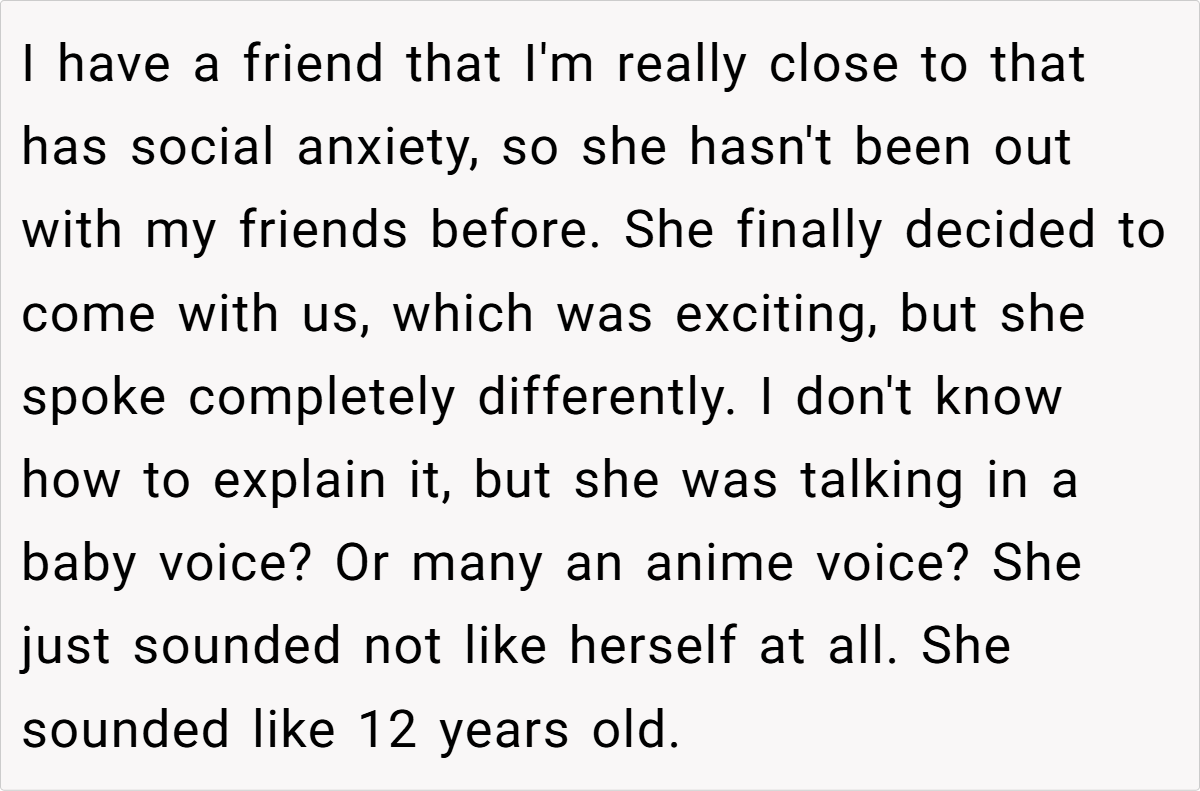
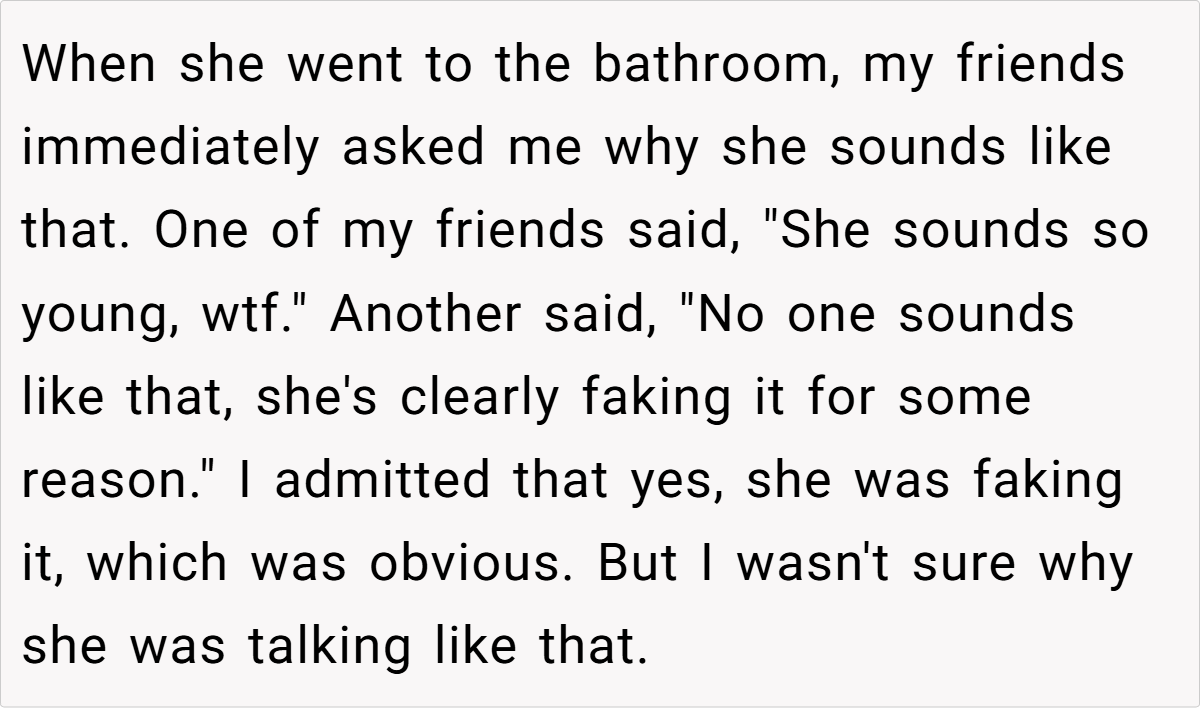
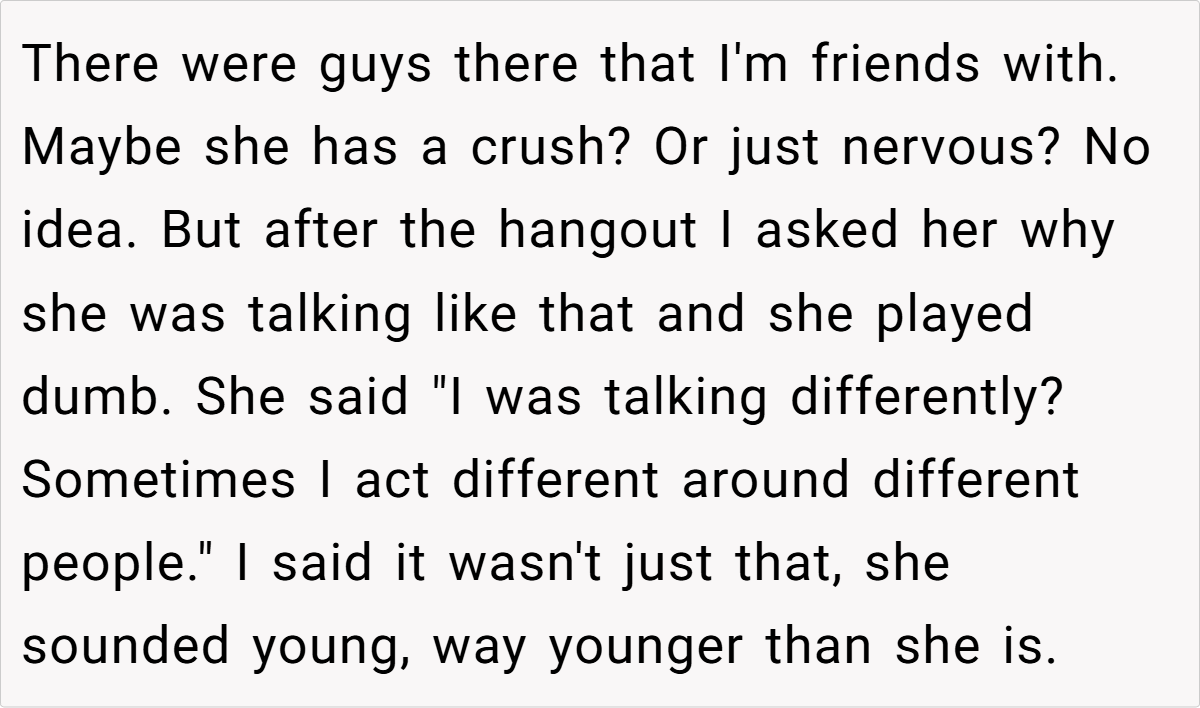
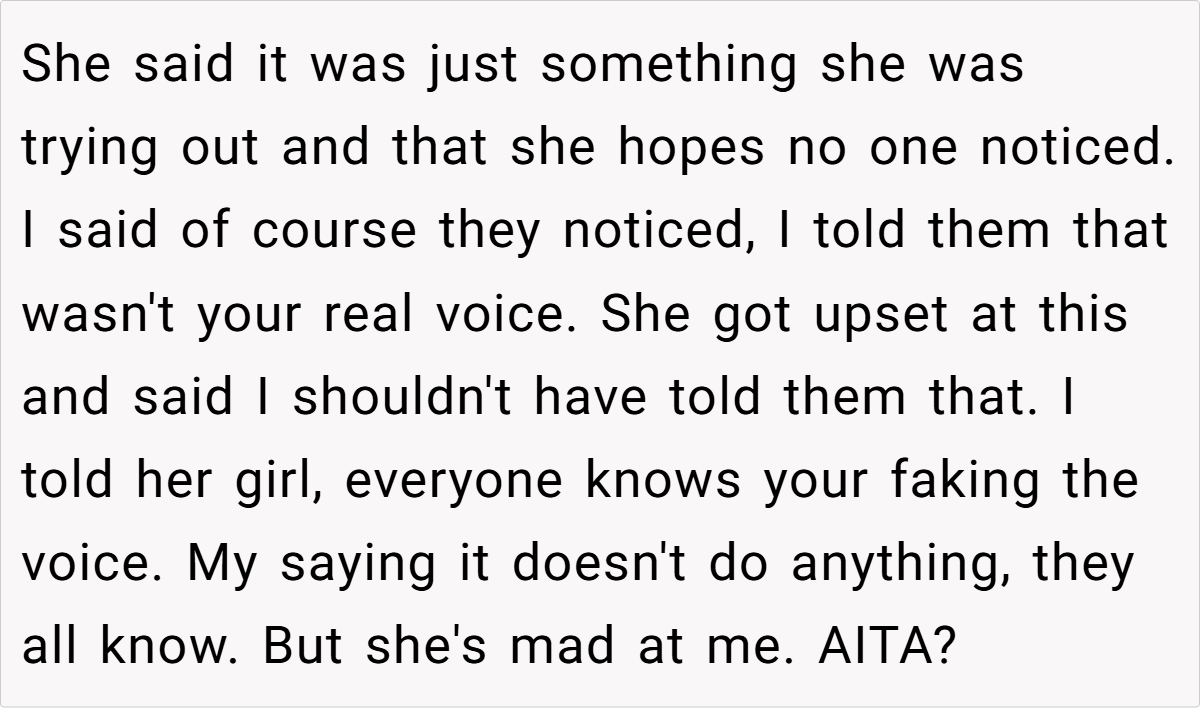
Experts in social anxiety and behavioral psychology explain that when someone alters their voice in social settings—such as using a “baby” or anime-style voice—it can often be a subconscious coping mechanism for managing anxiety and discomfort.
In this case, the friend’s unexpected change in voice may have been her way of feeling less vulnerable in an unfamiliar group setting. Rather than a deliberate act of deception, such a vocal adjustment is a common strategy for those struggling to fit in or ease social pressure.
Mental health professionals advise that pointing out these changes publicly—by saying, for example, “that’s not your real voice”—can be counterproductive and potentially damaging to her self-esteem.
Instead, addressing the behavior in a supportive and private manner allows for a more constructive discussion about her feelings and coping strategies. Ultimately, validating her emotional experience and exploring the reasons behind the voice change can help her build confidence, rather than feeling exposed or ridiculed.
Take a look at the comments from fellow users:
Many commenters empathize with the friend’s struggle, noting that social anxiety can lead to unexpected behaviors which deserve gentle support. Several community members feel that while the OP’s observation was honest, discussing it in a group setting was insensitive.
Others argue that a private, caring conversation might have helped her friend understand how her behavior was perceived without feeling publicly shamed. The debate often centers on whether the value of truth outweighs the need for empathy in moments of vulnerability.
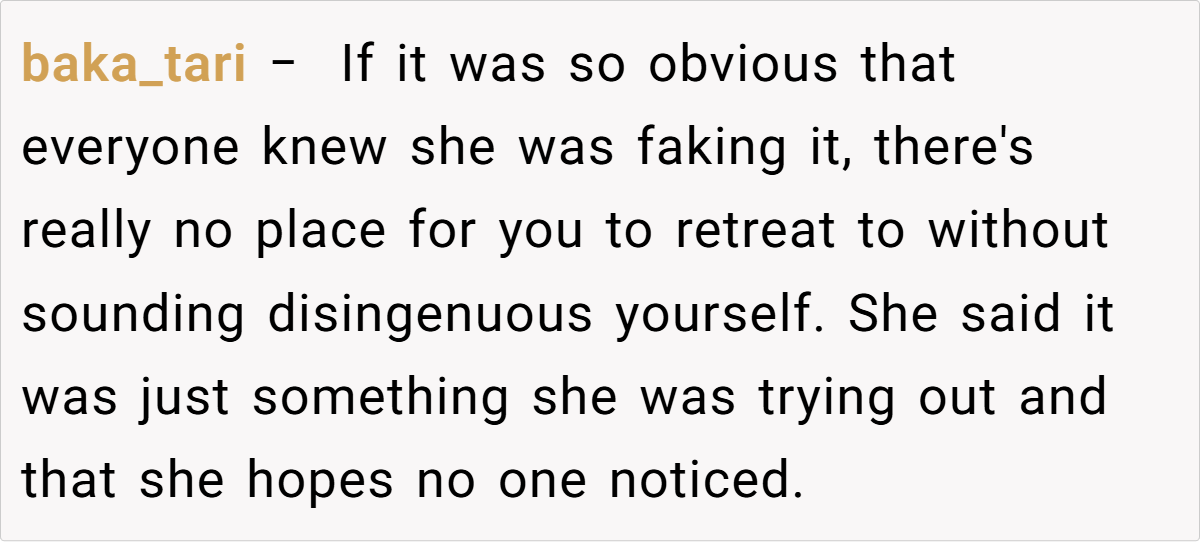
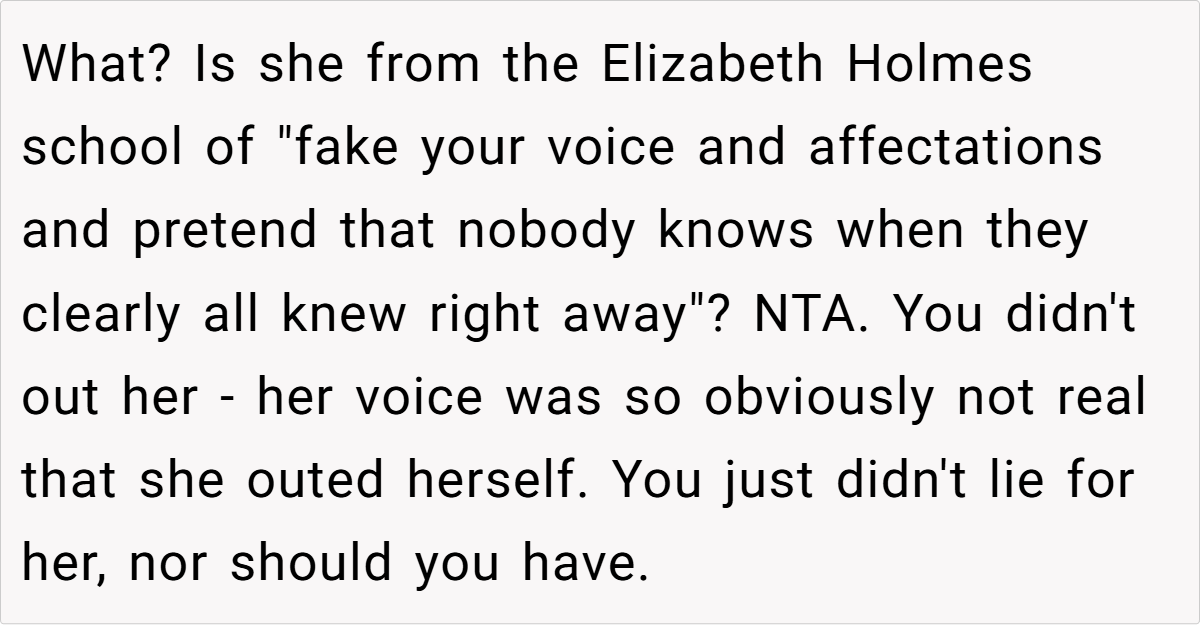
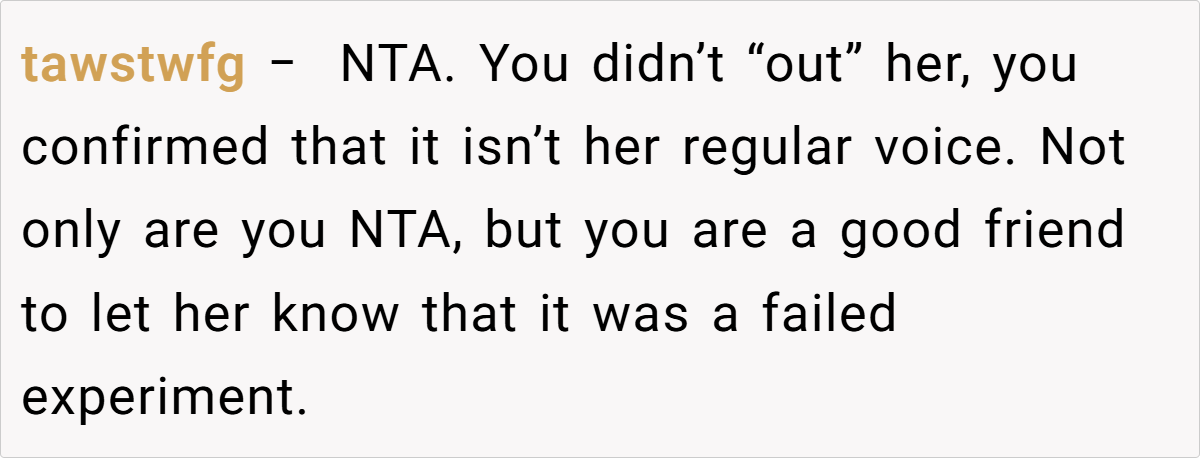
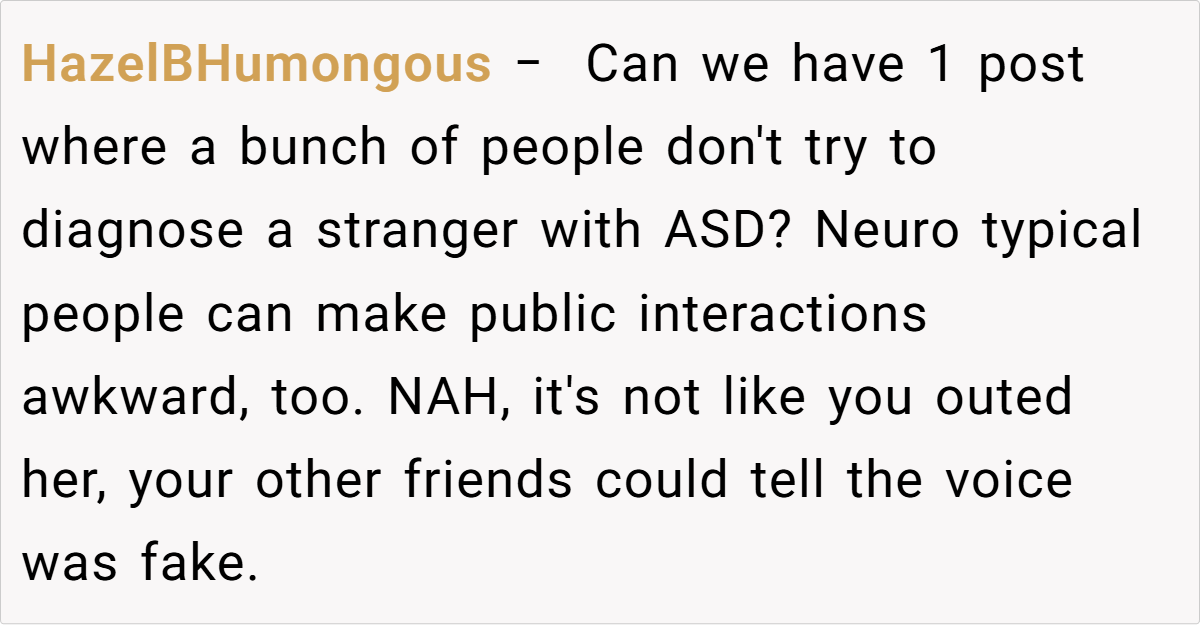
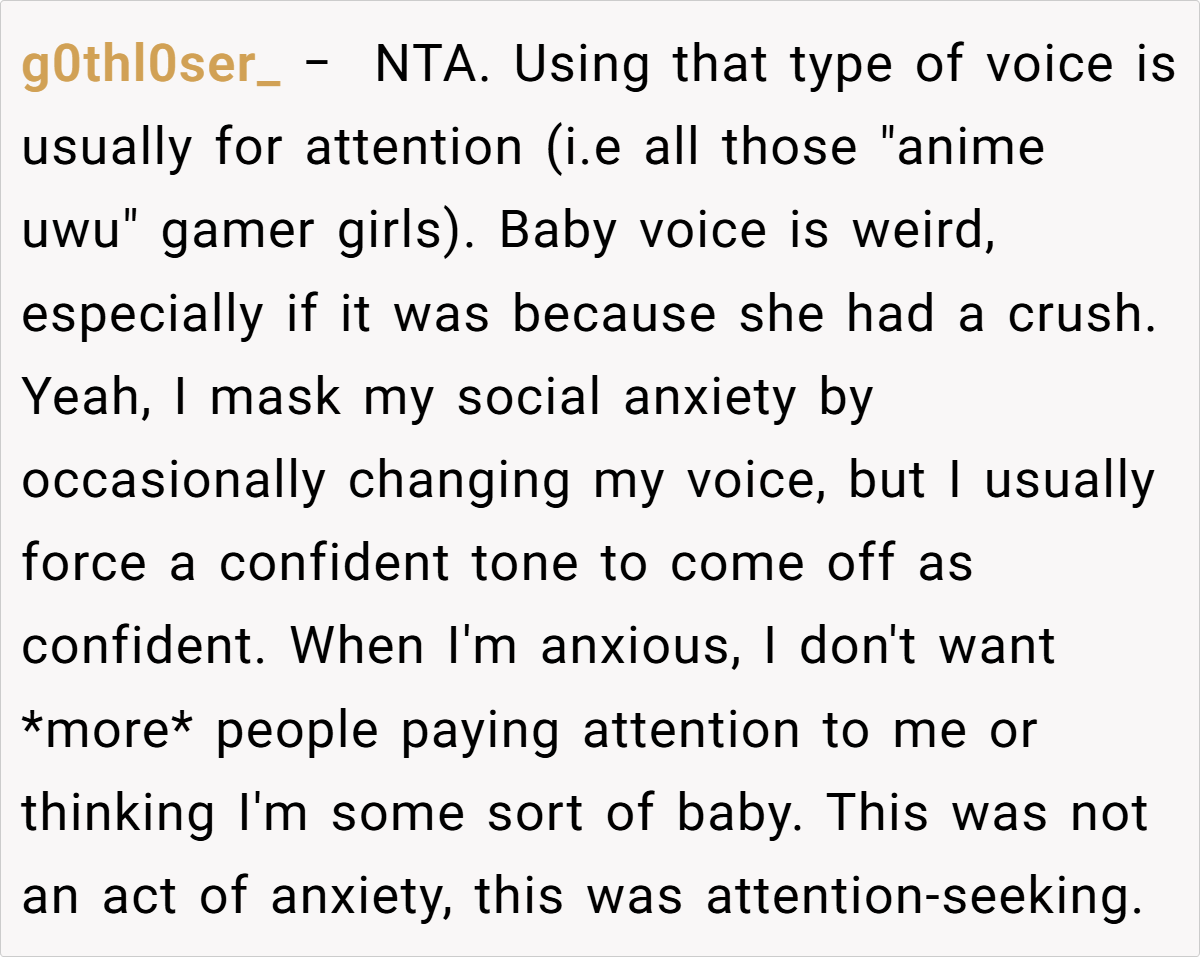
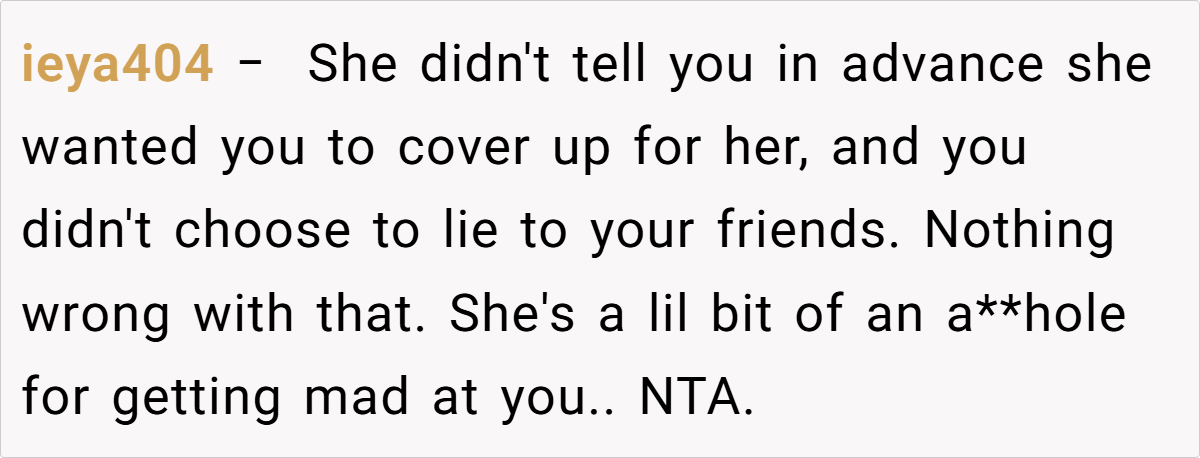
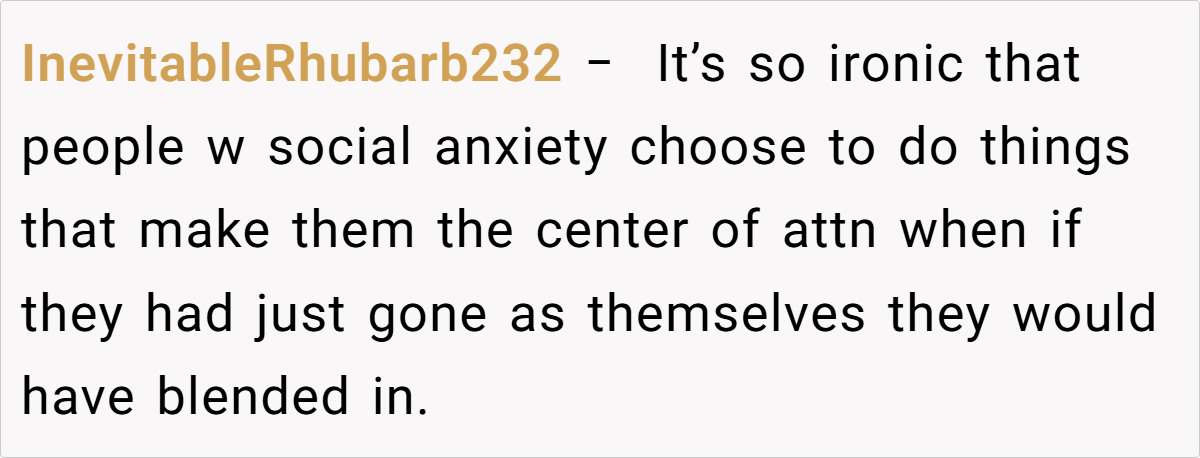
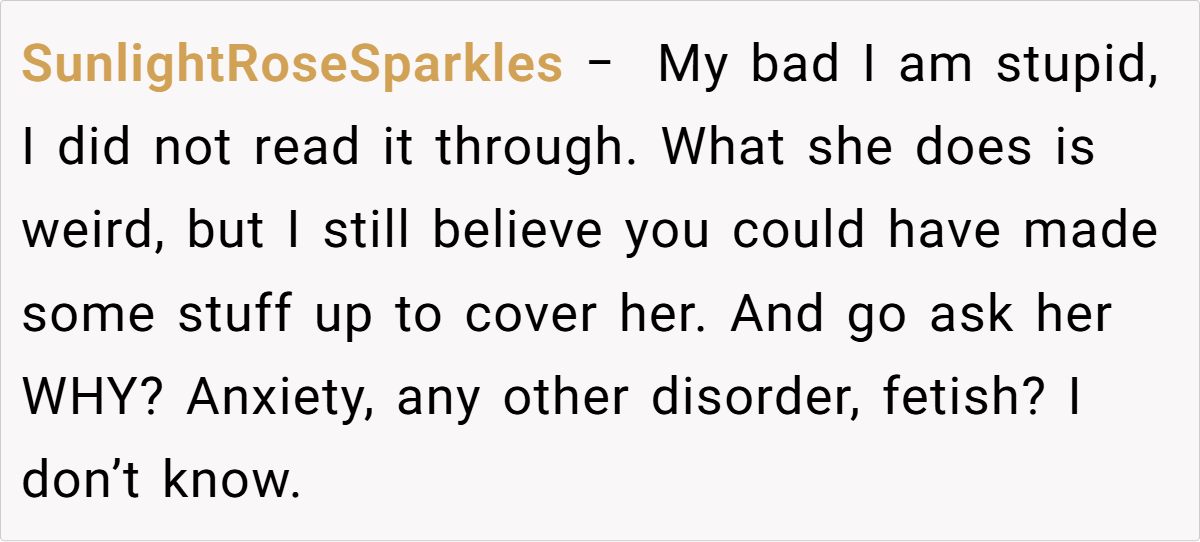
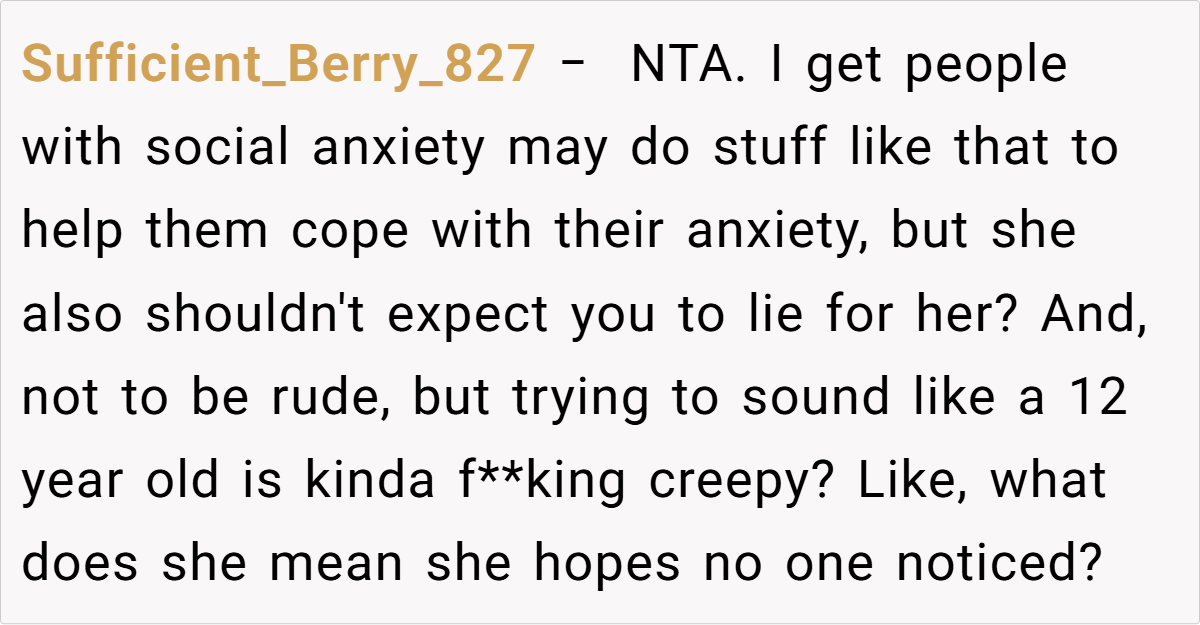
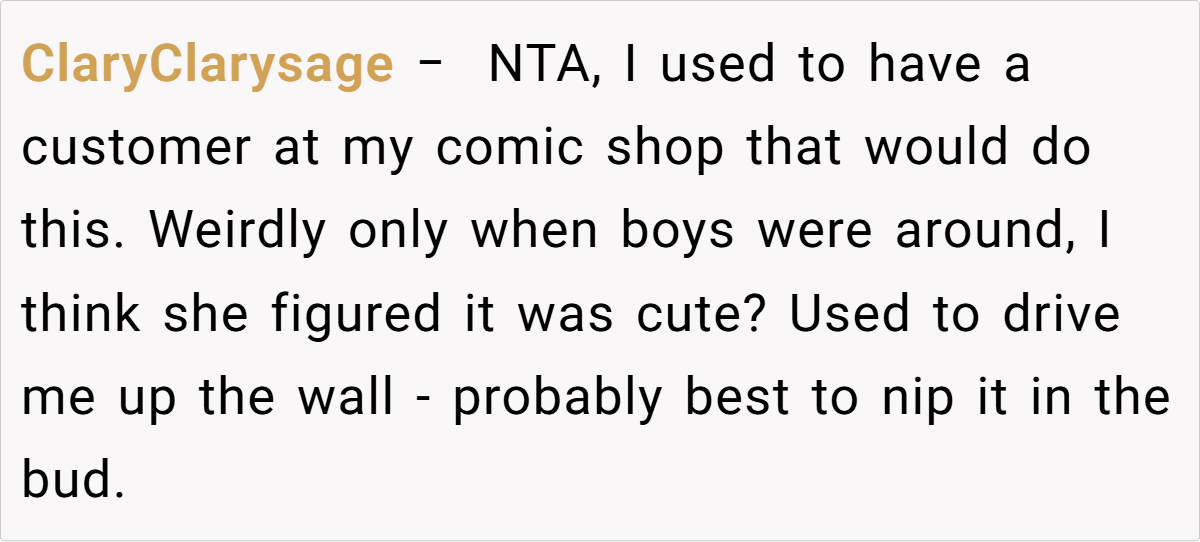
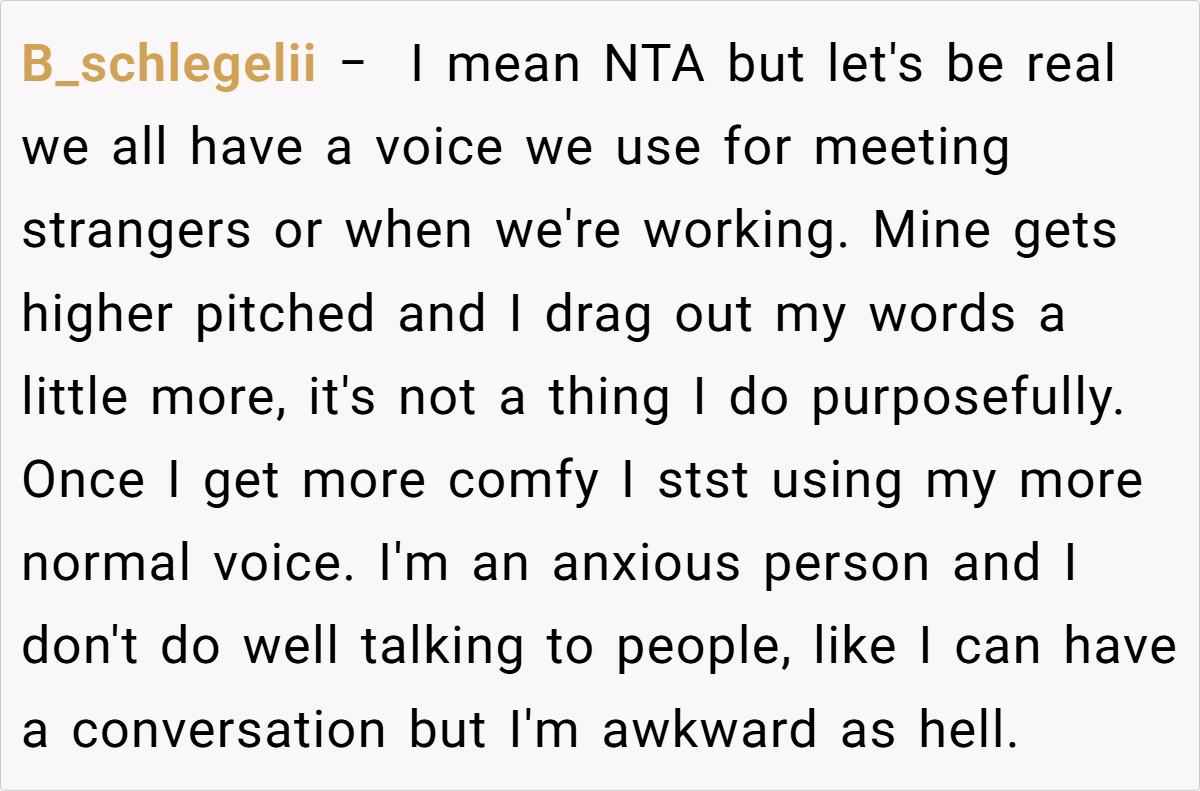
In the end, the incident isn’t about accusing someone of dishonesty but rather about understanding and managing social anxiety. The OP’s effort to point out the discrepancy in her friend’s voice may have been well-intentioned, yet the manner in which it was done has clearly hurt her friend.
What do you think? Should friends gently help each other notice these changes, or is it better to let each person handle their own coping mechanisms privately? Share your thoughts and experiences in the comments below.

